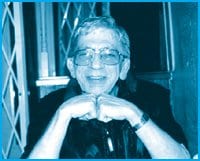Cary Grant might have become a bitter man bent on revenge after two homophobic cops tossed him into Lake Ontario in the middle of winter. Instead, he learned the importance of personal dignity in his 20s and he never forgot the lesson.
In the early ’70s “we used to go to an after-hours club in Toronto and I remember there’d be six policemen standing in this club and you weren’t allowed to dance with your arms around somebody of the same sex because they arrested you and took you to jail,” he recalls.
“Yonge St used to be a cruising area. I’d heard stories that the police used to come along and pick up gay guys and throw them into Cherry beach-and then one night I was walking down Yonge St and they put me into the back [of the police cruiser] and threw me into the icy water and drove away. I walked home and I can’t even begin to tell you how I felt. They scared the shit out of me.
“If I was a violent person I’d be at one of those anger management programs for the rest of my life,” Grant speculates. When he reflects with the wisdom of 30 years’ hindsight, he decides, “This guy has greater issues than me.”
He was born in Nova Scotia. “I’m a Cape Bretoner. I’m from an area where you walk into somebody’s home and the first thing they do is cook you a meal.” That experience, coupled with the Cherry Beach incident, are both reflected in the good deeds he does at Christmas with a lot of help from the folks from the Dufferin Hotel where he’s been manager for the past nine years.
“The Dufferin puts in some money, I put in some money,” and they create a Christmas Dinner for people who might otherwise not get one.
“We do it for the street people,” he explains. “There’s a lot of people in less fortunate circumstances and rather than identify them we just do it [the dinner] for everybody. They have to maintain their dignity.”
People put on good fronts. “You just don’t know. A lot of people live in one room, or don’t live in one room-or however they get by.” Grant doesn’t pass judgement. “People work their way through the best way they can. I’ve made a lot of money at times and spent it all,” he laughs, “and then I’ve had times when I didn’t have so much money and I had to struggle.”
That’s another reason he hosts the yearly dinner: he knows what the struggle for survival is about.
“Last year when I came back full time, it was the drag queens and some of the others who helped, who said ‘Are we going to do it again this year?’ There’s a lot of work to it.” Last Christmas there were a couple of hundred people for dinner. Grant was off work recovering from a shoulder replacement. He figures he wrecked it lifting too many kegs of beer. “I thought I was indestructible but I found out that once you get into your mid-50s, you’re not indestructible.”
His spirit of generosity has grown from his own experiences.
“I can paint a picture of this lonely gay kid in Toronto. When Christmas Day came around, and, being a bit of a loner, I didn’t have places to go. At the Dufferin we just put the food out. We don’t announce it. We don’t advertise it. Just anyone that comes in, has something to eat. I’ve always felt that people have to maintain their dignity and their pride.”

 Why you can trust Xtra
Why you can trust Xtra


